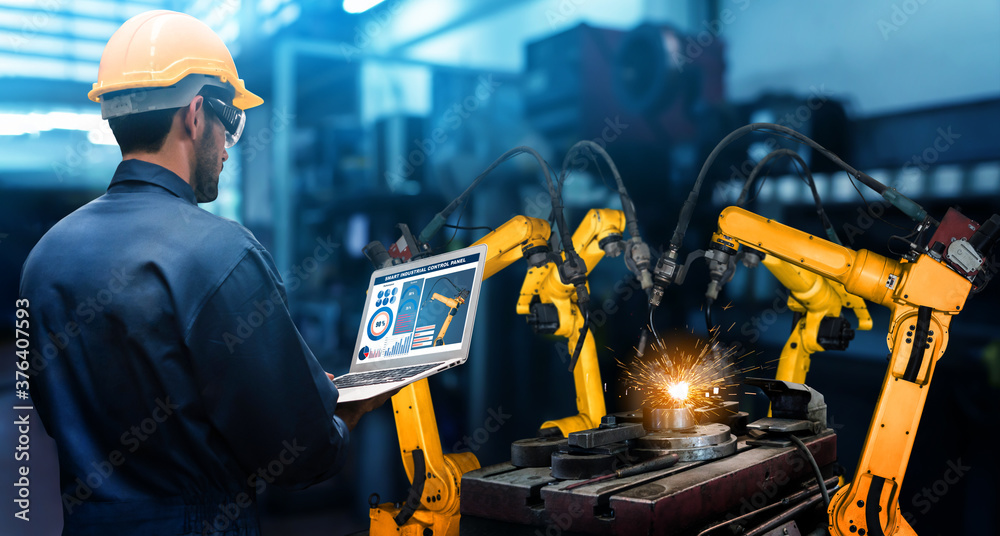In the wake of Covid-19, Manufacturing hubs worldwide are being forced to align their standards and procedures to the ‘New Normal’. Though many US businesses have resumed operations after having been shuttered during mid-March, it is uncertain as to how well mass production can fare long-term.
Oren Klachkin, lead U.S. economist at Oxford Economics in New York recently stated that, “The manufacturing recovery will proceed at a much slower pace compared to the initial, partial snap-back phase, the renewed flaring of virus-related uncertainty will add to significant downside risks from sharply curtailed demand, supply chain disruptions and heightened economic uncertainty.”
It is probable that the effects of the crisis will vary greatly depending on the manufacturing sub-sector, for example, construction machinery & intralogistics equipment will fare better than companies in machine tools & plastics machinery due to societal need but truly, only time will tell.
The Digital Workforce
Manufacturing work and the manufacturing workforce is evolving. Whether that is due to the shift in employee demographics or digital transformation and the introduction of a tech savvy workforce, the manufacturing industry is currently devoted to ensuring that talent is still being attracted and that its efforts to upskill both remote and factory works is not being wasted.
Attracting Talent
Attracting and hiring great talent is essential where any business is concerned – especially now – but where manufacturing it is vital. During April 2020, the manufacturing output for the US fell by 13.7%, the largest monthly decrease in output since the federal reserve began tracking industrial production over 100 years ago. To negate the impact of this, executives are pushing to increase talent in the industry.
According to the US Bureau of Labor Statistics, 1.4 million manufacturing jobs were lost in March and April 2020 combined and in June, the unemployment rate in the manufacturing sector sat at 9.1%. Evidently, a significant portion of manufacturing experts are out of work and for executives this represents an opportunity, to this end, business leaders should consider the following to attract talent.
Finding and Developing Workers:
Current estimates from Deloitte suggest that 2.6 million Baby Boomers will retire within a decade, to meet that exodus of staff members, executives should be looking to find and develop the next generation of manufacturers. Many organizations, in a bid to help the next generation of staff, are pairing their newest members up with seasoned staff to facilitate the passing of knowledge.
Improving Industry Image:
Manufacturing does suffer with something of an identity issue and generally, millennials see it as a stuffy profession and one that isn’t truly alive to the issues of today. If executives wish to bring the next generation of talent in today, they must rebrand quickly and effectively. According to Glassdoor, 84% of job seekers say the reputation of a company as an employer is important when looking for a job.
Upskilling
Attracting talent is certainly a boon in the current economic and social climate but executives must also pay keen attention to the current workforce, training them for these uncertain times as well as for remote work where they have to go digital. As Ardine Williams, Amazon’s VP for Workforce Development puts it, “Upskilling is important because the American workforce is changing. There’s a greater need for technical skills than ever before.”
A skills gap was plaguing the manufacturing industry even before Covid-19 hit. In the US alone, manufacturers were set to spend $26.2 billion on internal and external training initiatives for new and existing employees in 2020. This, however, was reported in January – that number has likely shot up.
The labor market is historically tight and consequently, 70% of US manufacturers state that they are creating or expanding training programs for their workforce. The success of any organization and their ability to negotiate this crisis will be achieved via the efforts of their employees, it simply makes sense that they should be as well equipped as possible in order to assist in this pursuit.
Continue the debate at the NG Manufacturing Digital Summit, where we bring together senior manufacturing executives who are actively seeking to share, learn, engage, and find the best technology solutions.
GDS Group hosts experts to help experts. We strive to provide an atmosphere for our attendees that enables them to confidently lead their companies through major transformation projects. For information on upcoming events, view our Digital Summits. To remain current on our activities, visit GDS Group on LinkedIn | Facebook | Twitter.






